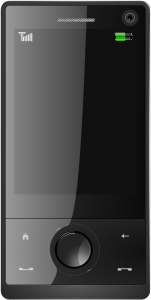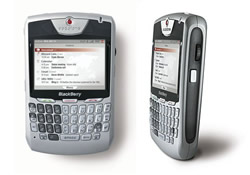 Das Unternehmen Sony Ericsson entwickelt sich im nächsten Jahr zu einem Smartphone-Hersteller und wird keine normalen Handys mehr produzieren. Zur Zeit sind alle Smartphone-Modelle mit dem Betriebssystem Google Android ausgestattet. Nach Angaben des Konzernchefs Bert Nordberg wird verstärkt in den Smartphonemarkt investiert und im Verlauf des Jahres 2012 das Portfolio vollständig auf Smartphones umgestellt sein. Laut Firmenangaben waren die Smartphones für 80 Prozent aller Handyverkäufe im letzten Quartal verantwortlich. Es wird für das aktuelle Quartal 2011 ein Marktanteil von 12 Prozent auf dem Smartphone-Markt angepeilt.
Das Unternehmen Sony Ericsson entwickelt sich im nächsten Jahr zu einem Smartphone-Hersteller und wird keine normalen Handys mehr produzieren. Zur Zeit sind alle Smartphone-Modelle mit dem Betriebssystem Google Android ausgestattet. Nach Angaben des Konzernchefs Bert Nordberg wird verstärkt in den Smartphonemarkt investiert und im Verlauf des Jahres 2012 das Portfolio vollständig auf Smartphones umgestellt sein. Laut Firmenangaben waren die Smartphones für 80 Prozent aller Handyverkäufe im letzten Quartal verantwortlich. Es wird für das aktuelle Quartal 2011 ein Marktanteil von 12 Prozent auf dem Smartphone-Markt angepeilt.
[Weiterlesen…] Infos zum Plugin Sony Ericsson wird zum Smartphone-Hersteller
Mobile phones
What is the point of unlimited data in mobile networks?
One has to wonder, when you read news like this, where Orange France is stating that their 500MB per month data plan, tied to the iPhone, excludes pretty much everything other than email and web browsing. So no VoIP, modem access for your laptop, or even newsgroups (??).
In Spain, Vodafone has been toting 5GB/month plans for some time now, with similar “fair use” policies. What is exactly the point of having such huge data plans, when all you can do is squint at the web on a tiny screen, or read your email – without trying to open attachments which are even harder to read. Granted, the iPhone has represented a leap in usability on these two fields, with fantastic web browsing, and very usable email where attachments can at least be useful. The only problem is the iPhone is one device lacking many functionality other platforms already enjoy, such as VoIP, decent IM, and…newsgroup access. These will come for sure, only because there is a very dedicated community of hackers porting and writing applications for it.
During my first month of iPhone use, when the novelty wants to make you try everything and, for example, browse the web when you don’t really need to, but just because it’s so cool – I went through about 70MB of data. Peanuts, compared to the 1GB plan I had with Vodafone…
Adding a TCP/IP stack to the BlackBerry 8707v
My first BlackBerry was a 7100v, the first that had the slim form factor and two letters per key – which despite what anyone says, is still more uncomfortable than a full-sized thumb pad. After a couple of years, I have returned to the BlackBerry (but still keep a Nokia N93 handy for pictures & video), getting an 8708v from Vodafone. Main features are a slower non-Intel processor, but CDMA 3G/UMTS technology, which makes surfing and downloading attachments much faster than over GPRS.

After a couple of days of trying to load my favorite software on it, I realized that the 8707v has a very big, very upsetting flaw for anyone who wants to use it beyond email, scheduling and phone duty. It doesn’t have a TCP/IP stack, like other BlackBerries – so connectivity has to be through BES/MDS or BIS, leaving out many applications which need a direct socket connection, for example, the very excellent jmIrc, which kept on saying “could not open tunnel” when trying to get connected. Checking out BlackBerryForums, and Jan-Piet Mens’ blog, the truth started to sink in – RIM had deliberately left out the IP stack, citing unknown problems as the reason. The official statement is here.
Some applications worked, such as Idokorro’s rather good SSH client, and IM+, configured to use a BIS connection. Performance was very poor though, taking a very long time to establish any connection.
Yesterday, I remembered using Opera on the 7100v and being a nice browser than the built-in one, so I set off to download and install it. Not exactly sure how it used to be installed in the days of the 7100v, but this time, when launching Opera, it attempted to run through a series of “tests”, eleven in total, trying to determine how to get connected to the net…and they all failed. A few minutes later on BlackBerryForums, this little gem showed up – explaining the method to configure an APN for the mobile operator in question in order to allow TCP connections – but surely it had to be wrong, the article refered to the 8707v. Well it turned out to be correct, and now, I have a TCP section in Advanced Options, where I can enter an APN, user name and password. I went ahead and tried Vodafone’s APN for Spain, airtelnet.es (Vodafone’s entry into Spain was through the purchase of Airtel, and it seems some things always stay the same!), and it worked! jmIrc also succeeded in connecting to the Freenode IRC server, as all other applications that weren’t working did.
What did installing Opera Mini do? Add a service book? Unlock the dormant stack, or install it? If anyone has an explanation, please do let me know – and to those who were undecided about the 8707v due to the lack of IP connectivity, this seems to be a solution.
Vodafone 3G failure in Barcelona, over 24 hours without incoming calls
If you have a 3G/UMTS phone and you are moving around Barcelona, it is likely that since Wednesday morning you could not receive any voice calls or SMS messages. Vodafone admitted that they had a failure in some parts of the network in the city of Barcelona, but didn’t give an estimated timeline for fixing the problem. Today, at 4pm, they still do not have an estimated time to solve the problem, and I could still not receive calls. This is extremely serious, as anyone having to receive important or emergency calls will not get them, and he will not know a thing about it. Your phone shows you have coverage, and you can dial out, so you are unaware until you meet someone that yells at you because they couldn’t get in touch for hours.
Vodafone support is usually quite good, but in this case…they really blew it!
Verizon to kill the mobile internet
Not much point to .mobi domains in the realms of Verizon, it seems – the New York Times reports that starting 2007, ads will be placed on sites that are accessed using their mobile phones. The Verizon Wireless release claims that certain types of ads and video clips will not be allowed, as they may not be compatible with the limited browsers found in the phones, but this is not very encouraging – meaning that they will allow video clips. Will this not hugely increase the amount of data used during browsing? I believe Verizon offers all-you-can-eat data plans, but if you are not using one of those, you could feel the pain. In any case, having to wade through a mobile website rendered on a tiny screen is hard enough as it is, with some devices not being able to cope with the amount of processing required, resulting in a very slow and frustrating experience. Add videos, which require much higher resources to be played back, and you have a recipe for disaster.